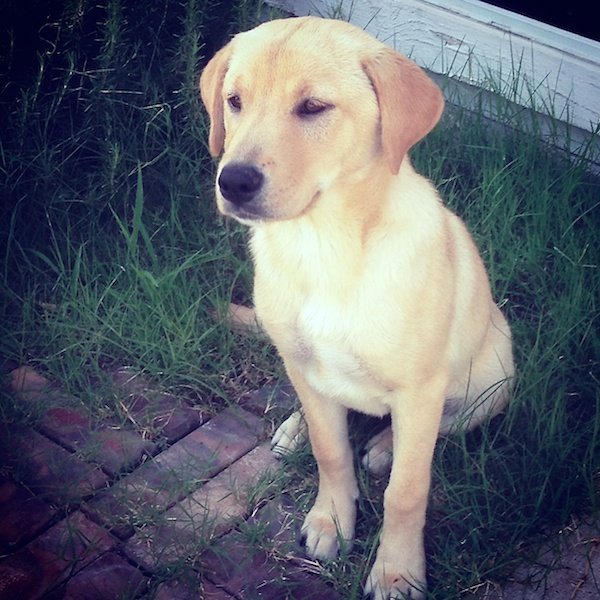 My wife and I are not what you would term animal people, by any stretch of the imagination. For years our kids asked for a dog and we quickly dismissed their constant pleading. However, one year ago my family adopted a six-month-old yellow lab-mix. We named her Nala because she reminded us of the lioness, Nala, in The Lion King.
My wife and I are not what you would term animal people, by any stretch of the imagination. For years our kids asked for a dog and we quickly dismissed their constant pleading. However, one year ago my family adopted a six-month-old yellow lab-mix. We named her Nala because she reminded us of the lioness, Nala, in The Lion King.
We have no idea what happened to Nala before arriving in our home. The shelter we rescued her from simply said that she was picked up wandering the streets. She was very timid and spent the first several days hiding under our kitchen table. We often wondered what must have happened to this loveable dog to make her so untrusting of humans. We worried if our home would be the right fit for her since we have a VERY active home; it is not uncommon for their to be 20-30 different people in and out of our house throughout the week.
Nala had spent the first six months of her life unwanted and was found alone. She spent the next six months in a loving home, but her lack of trust made her unlike a normal eager and energetic puppy. That was frustrating for all of us, but we loved her.
And our love won.
Nala and I were out for a run a few days ago when we passed by a person on the other side of the street. Nala began wagging her tale and pulling the leash towards them. I couldn?t help but remember how a year ago we were out for a walk when a person walked by and Nala darted between my legs and caused me to fall over as I was tangled up and tripped by her leash. On that day I sat on the ground furious?dumb dog. On this day I kept running and marveled at what love can do?transformed dog.
How many people enter our churches much like Nala? They have spent most of their lives unwanted and alone. The church may shower them with love, but their lack of trust makes them unlike our normal and energetic church members. These people can be frustrating to us. How do we love them?
First, we must give them space.
Sometimes we just have to let broken people be broken. We can?t fix them, but we can love them as they are. People may not hide under tables the way abused dogs do, but they certainly hide. When Nala would slowly creep out from under the table, my youngest son would run over and smother her. She would quickly run back and hide under the table. His love was intrusive and overbearing. Loving broken people requires wisdom and discernment. We must not be intrusive and overbearing, but always available with open arms.
How are you giving space to broken people?
Second, we must celebrate the small things.
I often think about how excited we get over watching a child take his or her first few steps. Parents gush with praise and excitement over something that billions of people are already doing and doing with a lot more proficiency. Sometimes small steps are really big steps. We acted like fools when Nala learned her name. We praised her, hugged her, fed her?you name it! These small celebrations communicated something?you matter.
Do we celebrate the small steps in the lives of people? Are we communicating to them their importance in our lives? Their importance to God?
Third, we must be more stubborn in our love than they are stubborn in their fear.
Nala was stubborn in her fear, because fear is what had kept her alive. People who have been hurt and are incapable of trusting others are stubborn in their fear because it has become for them a safety mechanism. Logic tells them that if they trust they will be hurt and therefore they should fear trusting in order to protect themselves from being hurt. When we love people who have been hurt we undoubtedly will be hurt in the process. Their stubbornness will frustrate us and it will become a race of endurance.
Will the stubbornness of my love outlast the stubbornness of their fear? Will I risk being hurt in order to love those who have been hurt?
This is the essence of the gospel. Christ has loved me in spite of my stubbornness and he has been wounded in the process. His wounds were not an obstacle to my healing, causing him to give up on me?his wounds made my healing possible. Christ-like love, cruciform love, is love that embraces wounded people with the full awareness that I will be wounded in the process. The wounds they inflict upon me will be the very means by which their own wounds will be healed. This is the way of Jesus.
People who have been hurt will frustrate us. They will wound us, but we must love.
And our love will win?because His love won.
